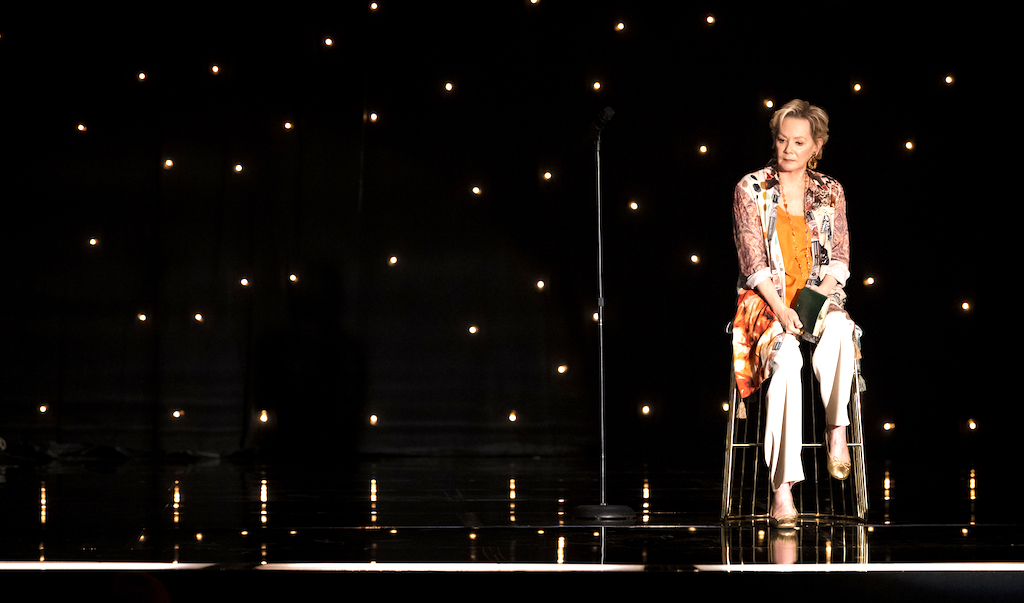“We met in New York, doing comedy,” recalled screenwriter Paul W. Downs about his time with the Upright Citizens Brigade. His co-creators Lucia Aniello and Jen Statsky were in a sketch group at the time.
“We were the only two women in the group and they eventually stopped emailing us, so I guess we got kicked out,” joked Lucia. “We never actually got closure on that, but I think we’re not in the group anymore.”
As writers, the trio worked together on Broad City, the comedy series from Ilana Glazer and Abbi Jacobson. “Jen was on set for Rough Night (Scarlett Johansson, Kate McKinnon) and while I was shooting my Netflix special, The Characters. I need my girlies to punch up jokes,” added Paul.
For their latest collaboration, Hacks, Jean Smart stars as Deborah Vance, a legendary Las Vegas comedian who begrudgingly takes an outcast 25-year-old named Ava (Hannah Einbinder) under her wing as her assistant. “It was on that trip where Paul was shooting his Netflix special that the idea for Hacks came about,” said Jen.
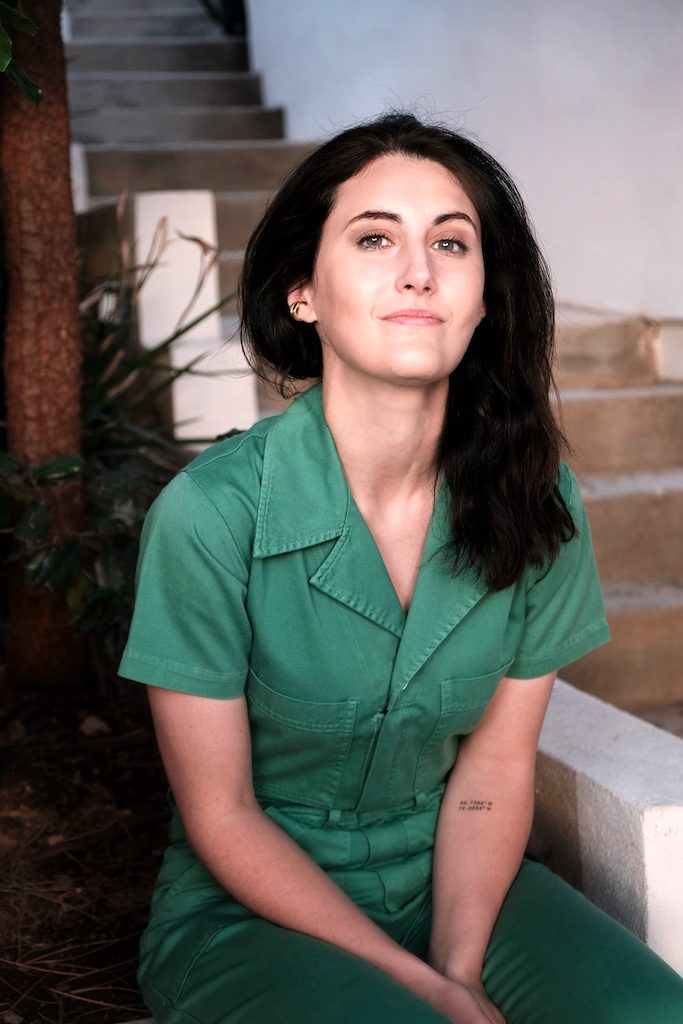
Jen Statsky. Photo by Andrew Law
“We were driving to Maine to shoot this sketch at a monster truck rally and we just started talking about women in comedy, and in the arts, who had had such a difficult path they had to overcome, that their straight white male counterparts did not.”
The writers wanted to dive deep into Vance’s character, which eventually led to a 10-episode arc for HBO Max. “We talked about a lot of different women in comedy and entertainment in general, ranging from Debbie Reynolds to Phyllis Diller to Joan Rivers to Elaine May,” said Jen.
“Deborah’s an amalgamation of a lot of people that way, but when Jean Smart signed on, who’s so incredible and one-of-a-kind, she made the character her own.”
Crafting Deborah and Ava
The two leads are similar, yet different, which naturally attracts them to one another. “While [Deborah and Ava] are diametrically opposed in their points-of-view, and their life experiences, they also are so similar. That’s what makes the show a little more nuanced and complicated as opposed to simply having different points-of-view,” continued Lucia.
“They’re both women that have been cast aside by society and who had put their careers first for a long time. But they’re also really funny, take no shit, and will actually bite back. They do have generational misunderstandings, but what makes the show tick is how they are similar in so many ways.”
Within these character traits, the show also works to integrate interesting themes in each episode. “We approached it in terms of character arc and theme in equal measure,” said Paul. “There are things we wanted to investigate. In Episode 8, we learned that Deborah was assaulted by a predatory club owner. For her, that was sort of par of the course. For someone like Ava, that wasn’t okay. She thought Deborah should have been more affected by it.”
In this episode, called “1.69 Million,” the writers wanted to dive into the generational perspectives on sexual assault. “First and foremost, we did plot out their relationship arc. Hopefully the show is about a lot of things and deeper themes.”
At the core, Hacks is a love story about two women who make each other better
Lucia added, “You do want to tackle important themes, but we’ve all seen stuff that feels like a writer on a soapbox. It shouldn’t feel like us talking about viewpoints. It should feel authentically coming from character.” Jen added, “AND funny!”
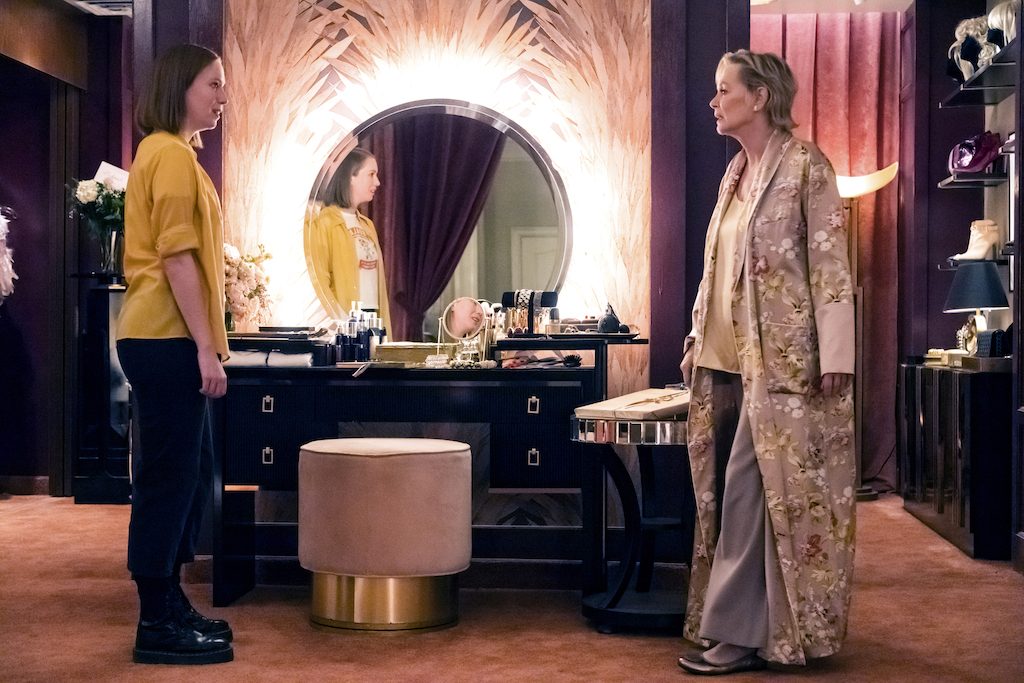
Ava (Hannah Einbinder) & Deborah (Jean Smart). Photo by Anne Marie Fox
“We also wanted to make sure we were never siding with either the older or the younger generation. We didn’t want to school the baby boomer or put the entitled zoomer in her place. We wanted it to be really nuanced, considerate, and thoughtful about their points-of-view,” said Paul. “They were both right, both wrong, and they had a lot to learn from each other.”
Cultural Forefronts
“I think Hacks could have been made ten years ago, but I think it would have been a movie,” stated Lucia. “A lot of these issues are culturally more in the forefront, but from the point-of-view of many women, this has been happening for a long time.”
“I think the dismissal and attack on inconvenient women has been around forever. I’m talking Salem Witch Trials. I’m talking cave drawings,” said the trio. “We had this idea six years ago, but it is interesting now, that we’re at this intersection where culture is talking about the stories we got wrong. Women were treated wrongly by society and mass media, whether that be Marcia Clark or Britney Spears. We got it wrong. It wasn’t fair how they were judged and what was done to them.”
Jen continued, “In Episode 6, Deborah says, ‘I realized they would rather laugh at me than believe me.’ That was so many of those womens’ stories. It’s easier for society to turn an inconvenient woman into a joke, rather than listen to her side of the story. We’re getting past it, but it’s been a trend in our culture for a long time.”
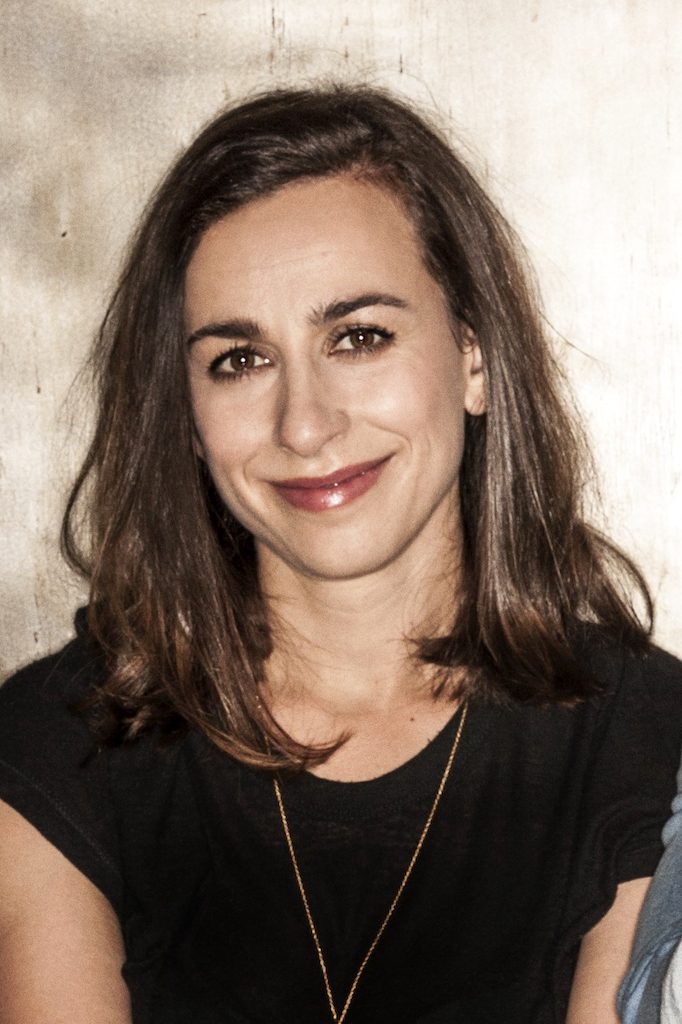
Lucia Aniello. Photo by Robyn Von Swank
Within all of these topics, the writers are also writing about the industry they’re a part of. “One way that it gets to be a little easier for us is that [Ava and Deborah] are not actually in the industry. They’re sort of on the fringes of the industry. Yes, she’s writing for a comedian, but she’s writing for a Las Vegas Show. Because of that, it does allow for us to be unique. I don’t think there’s a specific way to write for a celebrity opening a pizza shop,” joked Lucia. “We can take some liberties there.”
Paul continued, “As writers in the industry, we certainly had personal experiences we were able to draw on. I do stand-up, but we also had other stand-ups in the room and we wanted to speak authentically about what it’s like to craft material and that grind that never ends. Also, because these women are outcasts, we can explore more what happens offstage, behind the curtain.”
All of this is embodied in Deborah, a character that needed to be hilarious, but also grounded in heavy drama. “When you make the list of who can do both those things, it’s a short list and Jean is at the top of it.”
Writing Comedy-Drama
Hacks fills the somewhat new category of the semi-serious, 30-minute comedy drama series. “I don’t think we ever planned to make anything in terms of what was expected or what it should be. It was more about the story we wanted to tell,” confirmed Jen.
“I think we all pride ourselves in being able to change the tone based on what the story requires. In a way, you could say this is an evolution. In another way, you could just say this is what the story needed.”
Lucia added, “Over the last few years, there’s been a shift towards comedies having both those elements, but if I look back at shows that influenced me – Mary Tyler Moore or even Friends – there are low notes there too. There are super emotional moments between characters. The landscape has shifted and there’s more creative freedom. What we love about writing comedy is that you can make someone laugh, then break their heart. That’s life and we feel lucky to write a show that depicts life as it really is.”
Between high and low notes, the show is also in a unique position to speak directly to writers. In the trailer, for example, Deborah tells Ava “You don’t know what hard is. You got plucked off the internet at twenty. You got lucky… Good is the minimum. It’s the baseline. And, even if you’re great, you still have to work really hard!”
“We’re not trying to dissuade people,” said the creators. “It was our North Star to tell a story as true to life as possible. Sometimes you make a joke at a funeral because you need to laugh. We’re also trying to write about what it means to be a person in the arts of a creative person. It’s hard. Sometimes it’s deeply satisfying, but you always have to keep pushing.”
Deborah is the type of artist that wants to evolve and she has, many times, over a long career. “Evolving with culture and evolving with your own voice is hopefully a message people can take away and benefit from,” said Paul.
Writing the Pilot
In their six year journey from idea to pilot, the creators spent a lot of time just thinking about the overall arc of the series. Paul said, “What we endeavored to do in the pilot was set up things that not only pay off throughout Season 1, but are oftentimes bookended and payoff in the finale. Having the forethought of the entire story allowed us to do that. It required multiple rewrites and we worked scenes as much as we could so scenes could be the funniest and the most economical they could.”
The writers said most shows require their two leads to meet faster, but they really wanted to show the two different worlds in full before they put them in the same room. “For us, we wanted to establish worlds before we put them on the collision course, which is a 7-page scene of the two women coming together.”
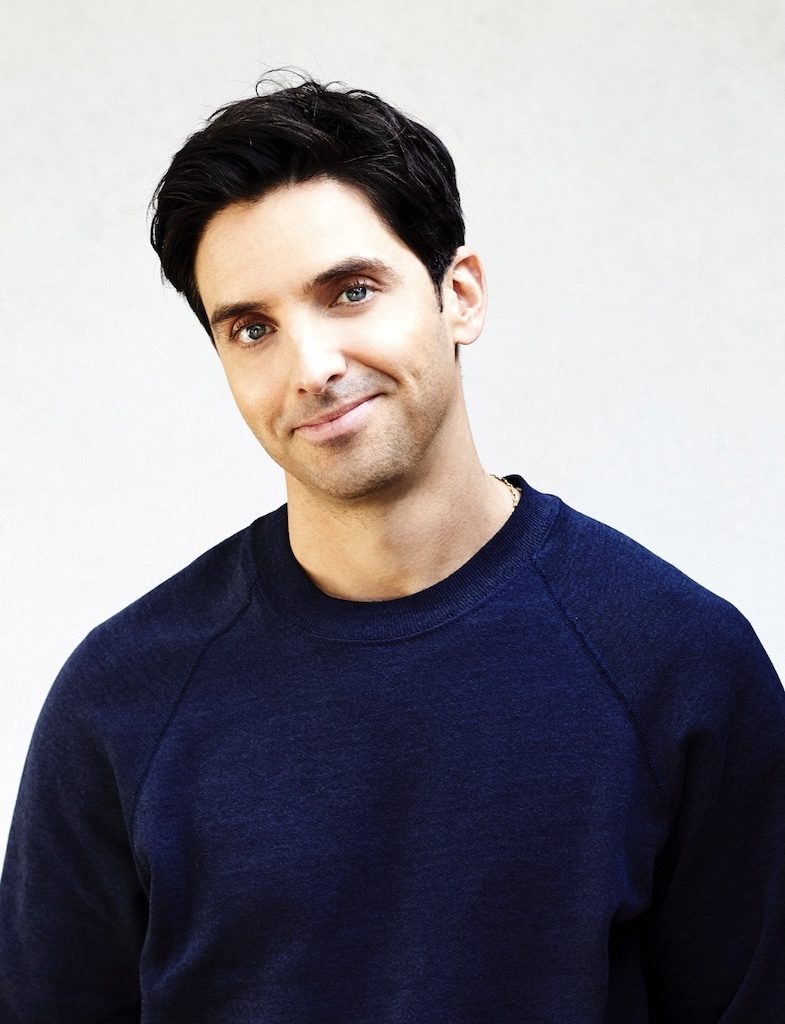
Paul W. Downs. Photo by Leigh Keily
In this scene, and in the overall series, there is an “ebb and flow to the power dynamic.” Paul adds, “Someone like Deborah who has more experience than Ava and has gone through the shit. But Ava is more on the pulse, culturally. We always talked about this show as a dark mentorship, so it’s almost Greek in its origin.”
“The entire series does hinge on that scene and a 7-page scene is a challenge. You have to have different notes and moods. It’s like a song. That took a long time to craft,” said Paul. For this series, the writers also got the direct-to-series greenlight, rather than having to make a pilot first.
“From a writing perspective, where I’ve done it both ways. I will say this way of writing is a more natural way to tell a story,” said Jen, who has additional writing credits on The Good Place, Parks and Recreation, and Hello Ladies.
“So much of we do in the pilot is lay out things that pay off ten episodes later. It’s harder to do that if you’re written and shot a pilot, but you haven’t figured out the end,” said Jen. “Having your tent poles done so you can figure out where it’s starting and where it’s going to end is so helpful in writing.”
As for the actual TV writers’ room, Lucia joked that their individual strengths and weaknesses change by the hour. “I think we’ve been working together for so long and learned from each other, that it’s three brains in a cauldron vibing together. It’s all about the spark of being around someone who makes you want to be funnier. It’s almost indescribable. It’s not mathematical, but chemical. You have to be excited and want to create.”
This interview has been condensed. Listen to the full audio version here.
